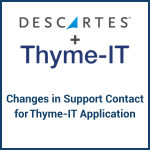Understanding the Phased Implementation of the Windsor Framework Regulations
The Windsor Framework is a pivotal development in the ongoing adjustments to post-Brexit regulations, specifically focused on Northern Ireland. As businesses across the UK continue to navigate the complexities of trading after Brexit, the phased implementation of the Windsor Framework regulations is designed to bridge the gap between the wish to maintain free movement of goods between Great Britain (GB) and Northern Ireland (NI) whilst simultaneously enabling free movement of goods between Northern Ireland and the Republic of Ireland by satisfying the EU that sufficient levels of controls are maintained to ensure that that any goods entering the Republic of Ireland from Northern Ireland meet EU regulatory requirements. In this blog, we will explore what the Windsor Framework is, why it has been introduced, its implications for businesses trading in Northern Ireland, and the importance of the right customs software.
What is the Windsor Framework?
The Windsor Framework is an agreement reached between the United Kingdom and the European Union to address the challenges posed by the Northern Ireland Protocol. The Protocol, part of the Brexit withdrawal agreement, was intended to prevent a hard border on the island of Ireland by keeping Northern Ireland aligned with certain EU regulations. However, it also created barriers to trade between Great Britain and Northern Ireland, leading to significant friction for businesses operating across these regions.
The Windsor Framework seeks to replace the original Northern Ireland Protocol with a more flexible approach that reduces the regulatory burden on goods moving from Great Britain to Northern Ireland while ensuring that the EU’s single market is protected. This framework introduces a phased implementation of new regulations that businesses must follow, aiming to strike a balance between facilitating trade and maintaining regulatory standards.
Why the Windsor Framework Came Into Existence
The Northern Ireland Protocol, though well-intentioned, quickly became a source of tension. It was seen by many as overly complex and burdensome, leading to disruptions in trade, increased costs, and significant paperwork. Businesses in Northern Ireland faced the prospect of being cut off from their key suppliers in Great Britain due to the stringent checks and controls mandated by the Protocol.
Recognising these challenges, the UK and the EU sought to renegotiate the terms, leading to the Windsor Framework. The primary objectives of this framework are to simplify the movement of goods, reduce the number of checks required, and provide greater clarity and certainty for businesses. By addressing the shortcomings of the original Protocol, the Windsor Framework aims to maintain the delicate balance of preserving the Good Friday Agreement, protecting the integrity of the EU’s single market, and ensuring the smooth flow of goods within the UK.

Implications for Businesses Trading in Northern Ireland
For businesses involved in the movement of goods between Great Britain and Northern Ireland, the Windsor Framework introduces several key changes:
- Green and Red Lanes: One of the most significant aspects of the Windsor Framework is the introduction of what are effectively “Green” and “Red” lanes for goods. Goods that are destined to stay in Northern Ireland will use the Green Lane, facing fewer checks and less paperwork. In contrast, goods that may move into the EU through Ireland will use the Red Lane, which will be subject to full customs controls. This differentiation aims to reduce the administrative burden on goods staying within the UK.
- Simplified Paperwork: The framework promises a reduction in the paperwork required for businesses. For example, customs declarations and checks will be minimised for goods using the Green Lane, streamlining the process and reducing costs for businesses.
- Phased Implementation: The regulations under the Windsor Framework will be introduced in phases, allowing businesses time to adapt to the new requirements. This phased approach is crucial for companies that need to adjust their operations, update their systems, and train their staff on the new procedures.
- Increased Certainty: The framework provides businesses with greater certainty regarding the rules governing trade between GB and NI. This predictability is essential for long-term planning, investment, and maintaining supply chain resilience.
The Need for the Right Customs Software
As the phased implementation of the Windsor Framework unfolds, businesses trading in Northern Ireland will need to ensure they have the right tools to manage the new regulatory environment effectively. Customs software becomes an indispensable asset in this context, helping businesses navigate the complexities of customs declarations, compliance checks, and data management.
Regardless of whether goods are destined for the Green or Red Lane there is still a need for digital reporting. Whilst this can be reduced and facilitated ultimately a digital notification and/or declaration is required in the majority of cases especially when it comes to b2b traffic.
There are still the requirements for an ICS declaration – soon to become ICS2 for Road (including Roll on and Roll off (RoRo) as well as air and maritime and initially for those currently moving goods under the parcel waiver.
There is still the need for a CDS declaration into Northern Ireland, even if it is the new reduced H8 data set under the SPIMM (Simplified Process for Internal Market Movements) arrangements and a UK Internal Market Scheme authorisation. Whether this H8 data set is used either in advance, on arrival or following use of Entry in the Declarants record it still requires data to be provided to Customs.
GVMS is still required to cross the Irish Sea to Northern Ireland.
The Role of Thyme-IT + Descartes in Simplifying Customs Compliance
Thyme-IT + Descartes, a leader in logistics and supply chain software, offers a comprehensive customs software solution designed to help businesses comply with the new requirements under the Windsor Framework. Here’s how Thyme-IT + Descartes can support businesses during this transition:
- Automated Customs Declarations: Thyme-IT + Descartes’ software automates the process of submitting customs declarations, reducing the risk of errors and ensuring that businesses remain compliant with the latest regulations. This is particularly important for goods moving through the Green and Red lanes, where different levels of scrutiny apply.
- Real-Time Data Integration: The software integrates real-time data from various sources, allowing businesses to track the status of their shipments and respond quickly to any issues that arise. This capability is crucial for maintaining supply chain efficiency and avoiding delays.
- Scalability and Flexibility: Thyme-IT + Descartes’ customs software is scalable, making it suitable for businesses of all sizes. As the Windsor Framework is implemented in phases, businesses can adapt the software to meet their evolving needs, ensuring they remain compliant at every stage.
- Compliance Management: The software provides comprehensive tools for managing compliance, including alerts for regulatory changes, automated reporting, and audit trails. This ensures that businesses can maintain accurate records and demonstrate compliance with the new rules.
- User-Friendly Interface: Designed with ease of use in mind, Thyme-IT + Descartes software ensures that businesses can quickly onboard their teams and start managing their customs processes efficiently. This is particularly valuable during the phased implementation, where timely adaptation is critical.
Current Windsor Framework Timeline – *Source Northern Ireland Assembly https://www.niassembly.gov.uk/assembly-business/brexit-and-beyond/the-windsor-framework/windsor-framework-timeline/
| 30 September 2024 | The full UK Internal Market Scheme will take effect for the movement of goods from GB to NI: full international customs requirements for traders are removed and simplified procedures apply. |
| 30 September 2024 | The new set of arrangements for the movement of parcels GB-NI will apply. |
| 1 October 2024 | The labelling requirements apply to all dairy products from GB using the Retail Movement Scheme, such as UHT milk and butter. The Government has decided this also applies across the UK from this point. The frequency rate of identity checks on retail goods consignments reduces to 8%. |
| 31 December 2024 | By this date, the first vote takes place in the Northern Ireland Assembly on the continued application of Articles 5-10 of the Windsor Framework, as outlined in the democratic consent mechanism. Read our explainer on the consent mechanism. |
| 1 July 2025 | All retail goods (other than goods sold loose) should be individually labelled (with some exceptions for those not subjected to EU official controls (e.g. confectionery, chocolate, pasta, biscuits, coffee). The rate of identity checks on retail goods consignments reduces to 5% |
| 1 July 2025 | All retail goods (other than goods sold loose) should be individually labelled (with some exceptions for those not subjected to EU official controls (e.g. confectionery, chocolate, pasta, biscuits, coffee). The rate of identity checks on retail goods consignments reduces to 5%. |
| 31 December 2025 | The grace period for veterinary medicines ends. By this date, the UK must ensure that supplies of veterinary medicines to Northern Ireland conform with relevant EU law and the provisions of the Windsor Framework. |
| By 1 January 2027 | A review of the Enhanced Coordination Mechanism on Vat and Excise should take place. |
Conclusion
The Windsor Framework represents a significant shift in the regulatory landscape for businesses trading between Great Britain and Northern Ireland. While it promises to ease the movement of goods and reduce bureaucratic hurdles, the phased implementation requires businesses to be agile and well-prepared. Investing in the right customs software, such as the solutions offered by Thyme-IT + Descartes, is essential for navigating these changes successfully.
With automated customs declarations, real-time data integration, and robust compliance management, Thyme-IT + Descartes equips businesses with the tools they need to adapt to the Windsor Framework and continue operating smoothly in this new regulatory environment. As the phased implementation progresses, having the right software in place will not only ensure compliance but also provide a competitive edge in a challenging market.




